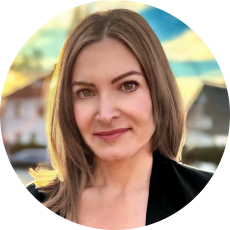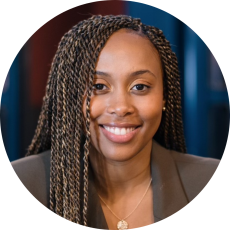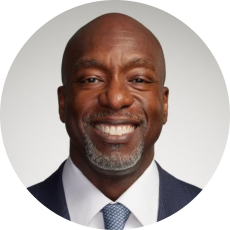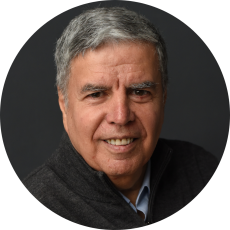NYU Stern’s Executive MBA Program Marks 40-Year Milestone

Flashback. The year is 1984—Ronald Reagan is president of the United States, the radio is blasting Prince’s “When Doves Cry,” Prince Harry is born, the first Macintosh computer is introduced, and NYU Stern launches its first Executive MBA (EMBA) Program with tracks in either finance or management.
Now marking its 40th year, Stern’s EMBA Program has evolved over the decades to keep pace with market dynamics and students’ changing needs. Today, EMBA students can choose from a number of specializations—including Entrepreneurship & Innovation, Leadership & Change Management, Finance, Strategy, and more—to deepen their expertise in key subject areas that can be applied across industries. Many students enthusiastically name the Global Immersion Experience (GIE) course, which was introduced more than 20 years ago, as one of their favorite EMBA experiences, which exposes them to businesses around the world through a one-week international residency. Stern also offers immersions designed specifically for EMBA alumni.
Stern even expanded its EMBA Program to Washington, D.C. in 2018. EMBA DC students either live in the surrounding regions or travel in given the once-a-month class format.
And while it's true that change is the only constant, some things have remained the same. Stern continues to attract seasoned executives to its cohorts, many with advanced degrees, and all bringing invaluable insights from their diverse professional experiences, creating a powerful peer network that grows stronger with each new class.
“Stern stands on a legacy of excellence when it comes to our Executive MBA Program. This is true for both the amazing students we continue to attract year after year, and the faculty who are handpicked to teach,” said Elizabeth Morrison, Vice Dean for Executive Programs. This deliberate match creates an inspiring and dynamic experience in the EMBA classroom that is second to none.”
EMBA Alumni Throughout the Decades
Professor Aaron Tenenbein Reflects On His Time With EMBA Since 1984 to Present
I have taught in the EMBA program since it started with the Class of 1984, which only had 19 students. The program has changed in that a greater choice of electives are now being offered to the students. In the 1980’s, the program was set with a set of courses with no choice. Today, more students in areas such as consulting, entrepreneurship, and market research have entered the program.
The EMBA teaching experience has been very rewarding to me in that students in the program are really motivated to learn. You do not have to convince them that the material is important. They also bring in their own experiences into the class making the interaction valuable for the students and me. The greatest teaching experience for any Professor is when the Professor learns from the students.
A Sharp Sword: Quinci Martin (MBA ’21) — 2020s

NYU Stern’s Executive MBA cohort comprises a uniquely talented and diverse group of students, but perhaps only one has gone through the program while tasked with inspecting Russia’s plutonium production reactors as Chief of Nuclear Operations Division at Defense Threat Reduction Agency. US Marine Corps Lt. Col. Quinci Martin (Ret.), admitted, “It was a balancing act, for sure.”
Martin, a 2003 U.S. Naval Academy graduate who spent the next two decades in a variety of roles for the Corps, was born into a military family that moved around the world during her formative years. Her own service took her to Japan, Afghanistan, and Germany and included stints with special operations as an Operations Officer for a Marine Raider Support Battalion, with increasing responsibilities in procurement, training, and recruiting. At the fourth Marine Corps District headquarters, she oversaw operations for one-sixth of the nation’s Marine Corps recruiting force. “In terms of recruitment, one luxury the Marine Corps has as an institution, which I think mirrors NYU, is reputation. I had 20 years of valuable lessons,” she said. “The service in general is a great stone to sharpen your sword on.”
She is currently an associate for Booz Allen Hamilton Inc., based in Germany and consulting on the war effort in Ukraine. It was a logical posting since she lived in Ukraine while on active duty, before the 2022 Russian full-scale invasion, but more than that, she said, “I felt a moral calling to support Ukraine.”
Her longer-term plan is to land a job in corporate management in the defense sector, and she sought an MBA to set her up for that transition. “I chose the program because I recognized the cultural distance between the corporate and military worlds, and I didn’t want to be pigeonholed into a military-specific role,” Martin said.
While flying back and forth from her base in Virginia to Russia for the Marines, Martin matriculated into the second cohort of Stern’s recently inaugurated DC-based EMBA program. “Stern has a reputation for teaching both ethical and responsible business practices, and it is becoming a leader in that realm, which I think is important.” Although she had significant experience with management responsibilities in the military, Martin said that her MBA courses in leadership and corporate strategy influenced her career goals as she prepared to transition from the military.
The overall Stern experience was “life-changing” in more ways than she had expected. Military service is renowned for creating strong bonds of fellowship, and Martin said she had a similar experience at Stern. “I found a lifelong group of friends.”
Economic Development Evangelist: Carmelle Cadet (MBA ’15) — 2010s

Carmelle Cadet is a passionate advocate for addressing financial inclusion and resilience in underbanked and developing and emerging markets. After a 10-year career with IBM, where her most recent roles focused on blockchain, Cadet founded EMTECH, a New York City-based fintech company, to help central banks around the world with adopting modern technologies to provide financial inclusion by design and develop resilient financial market infrastructures.
A native of Haiti, Cadet developed her interest when she first immigrated to the U.S. “My mom made the smart decision to find a better life in the United States. I saw how access to financial services impacted people’s ability to have healthcare, education, and a higher standard of living. My career at IBM undoubtedly helped me marry that passion to technology–big, complicated, and global technology.”
While at IBM, Cadet contemplated earning an Executive MBA, and NYU Stern was her first choice. “NYU is a highly prestigious institution, and the alumni have been quite impressive. I wanted to be part of a strong network at this stage of my career and get exposure to international business outside of IBM. The NYU EMBA program was the perfect fit!”
“With over seven years of experience at the time, the program deepened my skills in finance, strategy, sales, marketing, negotiations, communication, and strategic thinking. The case study approach was a very effective way for me to learn, and it made me sharper in all of those areas of business. More importantly, the program left me with a framework of how business works, what’s important, and why. I still use that knowledge as a chief executive officer. I wear many hats and the broad knowledge across those areas allows me to navigate as a solo founder in the early days of a startup.”
At EMTECH, her first venture as an entrepreneur, Cadet has raised over $10M to modernize the digital infrastructure of finance in emerging and developing countries, and the company’s platform is being deployed in six central banks, with more to come. “I’m proud of our vision,” she said. “We believe everyone deserves access to a resilient and inclusive financial market. To make that possible, we focus on building technology that solves difficult legacy problems at the central banking level.”
Cadet has stayed engaged in the NYU and Stern community by participating in conferences and panels. “I’m a proud Sternie, and I remember how encouraging and inspiring it was for me when I attended events where our alumni spoke. I hope to share my story with those who find value in it. That’s the least I can do. I hope to do more in the future."
A Point of Pride: Claude Wade (MBA ’02) — 2000s

When Claude Wade, executive vice president, chief digital officer and global head of operations and claims, at AIG, applied for the Executive MBA Program at NYU Stern, he was a vice president of corporate compliance at Prudential Financial. He had considered similar programs at other top schools. But a comparison shopping trip to Stern clinched his decision. “I audited a class and was impressed with the open, constructive dialogue there, in contrast to the other school I visited,” he said. “I felt very comfortable immediately.”
Once Wade matriculated, he discovered that that collaborative spirit was very much the soul of Stern. “We had a great cohort, and I developed great relationships and learned a lot from my peers. Our study group all went on to C-level positions, and we became good friends.”
He was pleased to find that his courses were immediately applicable to his day job, he recalled. “Aswath Damodaran’s valuation class was enormously helpful, and William Guth’s corporate strategy course, which brought in Jack Welch to discuss transformation and strategy at General Electric, was fantastic.”
Wade attributes his ability to analyze complex financial statements and his leadership skills to those foundational courses. A capstone trip to China was also “transformational,” he said, leading to his making about 20 trips to the region since. That international perspective informs one of his current missions, where he has overall executive responsibility for reshaping AIG’s global operating model.
The Stern MBA has given Wade more than an understanding of how complex businesses operate, he said. “My Stern degree has credentialed me,” he said. “It’s opened doors to conversations I might not have had access to, and immediate connection with other Stern alumni.”
He is proud to have created sustainable solutions across the organizations he has worked with, including a licensing and registration system still in use at Prudential and a risk transfer solution at Marsh. At BlackRock, Wade founded and headed BlackRock’s Atlanta Innovation Hub, one of the company’s most diverse offices, and was instrumental when BlackRock supported Georgia’s 2020 hate crime law. At AIG, his team is developing a “transformational” generative AI solution.
A recent college-scouting trip to New York took Wade and his son to Washington Square Park, and seeing the School up close again was surprisingly meaningful, he said. “Stern remains a point of pride for me.”
30-Year Booster: Carlos Vassallo (MBA ’94) — 1990s

For Carlos Vassallo, now three decades past his completion of the NYU Stern EMBA program, the greatest value he has reaped from his association with Stern is the network he has built among alumni. He figures he has connected with as many as 500 Sternies over the years.
Born and raised in Argentina through university, Vassallo said the EMBA program opened up new vistas for him. “I enjoyed how open-minded and international Stern was. I met students from around the world, and for me it was very cool.” He was inspired to take an active role as a student, occasionally recruiting executives to visit and speak to classmates. “I was the only entrepreneur in the class, so my approach was different.”
Even more valuable than the skills he acquired at Stern was the community he found there, first as a student and then as part of the larger alumni community, he said. “It was validating for a non-US citizen to be able to connect with alumni for guidance.” His was the first class to use email, which greatly facilitated networking and after graduation helped him be a member of the Latin media and entertainment commission of the City of New York launched by Major Michael Bloomberg to foster recognition of the Hispanic business community. He founded and operated various startups over his career, most recently spending the last two years building an innovate fragrance company which he is planning to launch later this summer.
The Stern EMBA was “life-changing,” he said simply. “If it weren’t for Stern, I would have stayed in Argentina. The day I received my diploma was, along with my wedding and my children's’ births, the most meaningful in my life.”
Vassallo has consistently remained engaged with Stern. For instance, he helped organize an entrepreneurs’ week for MBA candidates under the auspices of the entertainment, media, and technology (EMT) alumni affinity group, contributing Cuban cigars and Argentinian wine as well as his experience in the field. “I enjoy being involved. I find it inspiring and rewarding, and I always learn something”
Stern Was ‘Magic’: Denis O’Leary (MBA ’85) — 1980s

Only five years into his career when he applied to NYU Stern’s recently launched Executive MBA Program, on paper Denis O’Leary might have been the least experienced member of the class, despite being treasurer of Manufacturers Hanover Corp. What he found at Stern, he recalled, was a “wonderful mix: a class of 35 “highly capable people from marketing to operations to technology to finance, all adding current ‘case’ flavor to the academic experience” and a “consistently great” faculty. “I am not prone to hyperbole, but I will say there was a fair amount of magic in the program’s classroom experience.”
O’Leary joined Manufacturers Hanover in 1978, and later as chief information officer, led its technology integration with Chemical Bank and subsequently Chase Manhattan. He rose to head of the retail banking business and a member of the firm’s executive committee prior to leaving JPMorgan Chase in 2003. “I credit my Stern experience as a key catalyst in my career growth,” he said.
Key to the chemistry he found at Stern was the faculty. “One of my earliest classes started with Robert Kavish kicking off his lecture on economics with a recital of Yeats’ poem ‘The Second Coming.’ Immediately, I knew I was in for a treat, and Kavish proceeded to show us why he had won so many teaching awards. Over and over, it became clear that NYU had brought its superstar team to initiate this program: Altman, Craig, Walter, Tennenbaum, and Kavish…the list went on.”
O’Leary said that he looked forward each Friday to heading downtown to Trinity Place after a pressure-filled week at work. The program’s orientation toward strategy more than tactics “cultivated a commitment to lifelong learning” that he was primed to absorb. “I could easily say part of my undergraduate experience was wasted on me; but at this point in my life, I was ready—and I knew how lucky I was to have these great professors. In the years that followed my graduation, I sponsored executives for the program, guest-lectured at Stern, and funded a scholarship."
